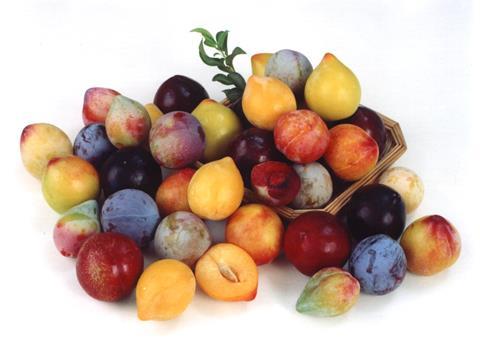The war in Gaza has affected labour availability in Israel, but the fall in stonefruit exports has more to do with rising transportation costs and strong domestic demand
Production of fruit and vegetables in southern Israel has been significantly affected following the events of 7 October and the subsequent conflict in Gaza, largely as a result of the impact on labour availability. For this reason, agricultural areas that rely heavily on mechanisation have recovered better in recent months.
There is very little cultivation of stonefruit – peaches, nectarines, apricots, plums and cherries – in the southern areas of Israel, mainly because the climate there does not enable nearly enough chilling hours required for optimum fruit production.

Stonefruit cultivation is based mainly in Israel’s highland areas - Galilee (Western, Central and Upper), the Golan Heights and Jerusalem Hills. The Galilee and Golan areas have been badly disrupted by the “non-war” with Hezbollah along the border with Lebanon where many of the orchards are situated only tens of metres from the border. This has affected the quantities harvested and other essential autumn activities that will be reflected in 2024 yields.
In recent years, the area under shaded cover has increased significantly to combat climatic fluctuations. A combination of very high temperatures and increasing light intensity has, among other things, delayed fruit colouration.
The area cultivated has remained fairly consistent over the last decade. According to data from Dr Anat Zisovitch, extension agronomist for deciduous fruit at the Ministry of Agriculture, peach and nectarine production stands at 4,200ha; plums at 1,500ha; apricots at 760ha; and cherries at 600ha.
Many different varieties are cultivated, both long-standing and recently developed. The overall area remains fairly static, uprooting of old orchards being matched by new plantings. Jewish religious laws decree that fruit produced in new orchards must not be harvested until the fourth year, any fruit produced during the first three years being discarded.
The main target for Israeli stonefruit exports used to be Russia, with the UK being the largest recipient in western Europe. However, a combination of factors, including Covid-19 restrictions, a significant rise in shipment costs and increased demand within Israel, have contributed to a decline in exports to negligible volumes.
Nevertheless, Israeli companies continue to export stonefruit technology and innovative varieties, not least Ben Dor Fruits and Nurseries, a family firm based in Upper Galilee and founded in 1880. The Ben Dor Company has developed, over the last 40 years, innovative varieties that combine early- and late-maturing genetics with different skin and flesh colours, including red-flesh nectarines and watermelon plums with green skin and red flesh.
In the plum segment, a super sweet fruit (up to 31 Brix) with a crunchy and juicy texture has been developed, such characteristics being preferred in the Asian and Middle East markets. For apricots, Ben Dor has bred and developed highly unusual combinations: Blackot is black on the outside with yellow flesh; Vaiolet is purple on the outside with red flesh; and Tigercot has red stripes on the outside and crimson flesh within.
Breeding director Ido Ben Dor commented: “Varieties developed by the Ben Dor Company are to be found growing in 34 countries worldwide, the genetics being exported from Israel. We have established companies and we cooperate with local nurseries/growers/exporters in various countries that cultivate their own trees to be planted locally, marketing the fruit internationally.”



